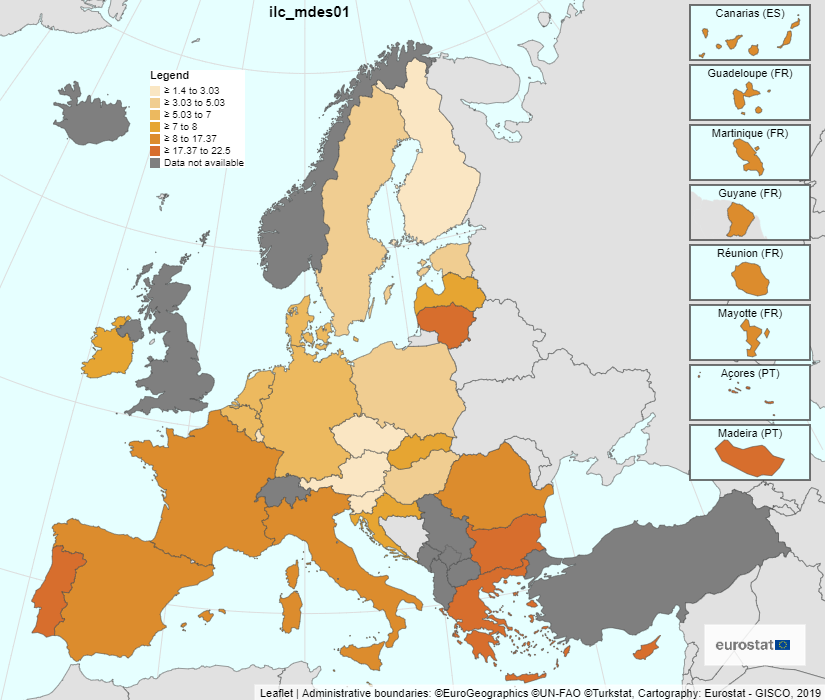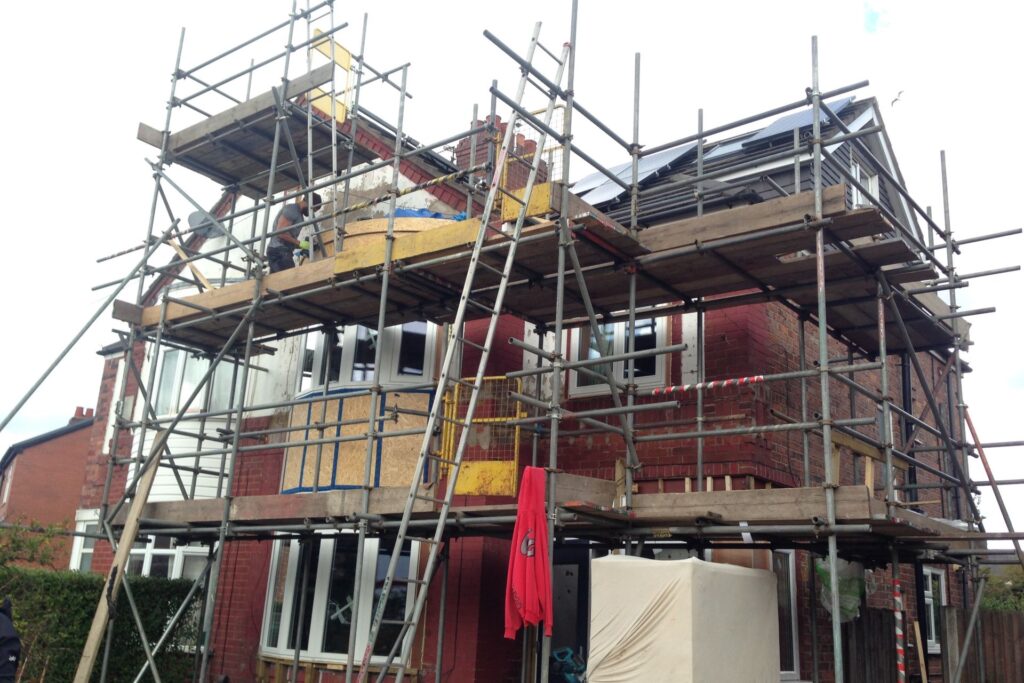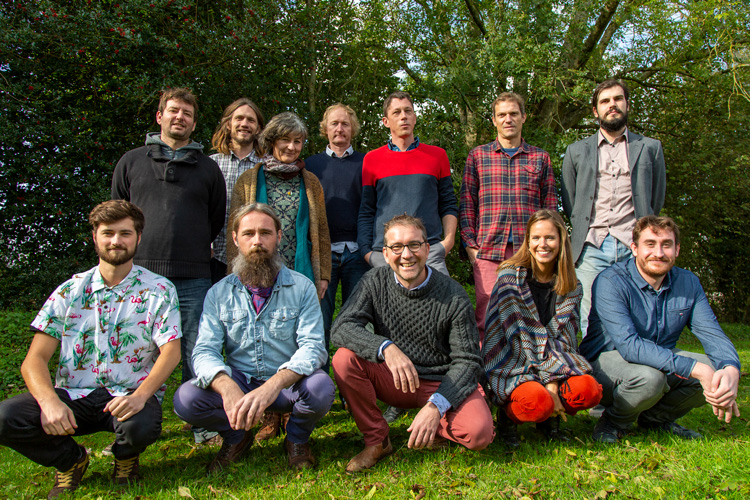Citizens, Democracy, and the Renovation Wave
Energy cooperatives across Europe are coming together to democratize the Renovation Wave.
‘Together we are stronger’ is the motto for community-led initiatives to bring ground-up involvement in renovating buildings. Our homes are more than just shelters; they are where we create lifelong memories and find comfort. These dwellings are in many ways essential to our lives and well-being, yet we often overlook their energy efficiency and environmental impact. When we do contemplate improvements, the costs of renovations can be a significant barrier.
Our homes: building blocks for climate change resilience
Today, households are responsible for up to 40% of Europe’s total energy consumption and a staggering 75% of homes are considered as inefficient. The renovation awaiting the building stock is immense given the millions of old edifices across Europe. This reality is a stark reminder that many Europeans are living in damp and leaky dwellings that often rely on polluting fossil fuels, despite the European economy’s worth of €14.5 trillion in 2021. Fortunately, a shift is underway, as collective renovation projects gain momentum across Europe.

Renovating our homes is crucial to save on energy bills, enhancing energy efficiency, reducing energy demand, and increasing our household resilience against the challenges of climate change. However, renovations are often prohibitively expensive, intrusive, time-consuming, or poorly executed. Consequently, many citizens hesitate to undertake renovations or simply cannot afford them. Luckily, ground-breaking solutions are emerging. Through energy democratization policies, European residents are being empowered to embark on – and own – their renovation journey.
The rising role of energy cooperatives
Local energy cooperatives and communities have emerged as trusted partners in the process of building renovations. They provide access to information, help home-owners to find reliable contractors, and assist in up-grading heating and cooling systems. Energy cooperatives are turning renovations into a citizen-led endeavour, fostering a participatory, communal, and collective approach. Cooperative citizen-led renovation programs offer reliable services and reduce the overall cost of the renovations due to their not-for-profit nature.

In the last 10 years, there has been a significant focus on citizen-led renovation (CLR) activities at REScoop.eu, the European federation of citizen energy cooperatives. The federation have been developing CLR activities for several years, and there is now a growing interest in the development of CLR programs. The success of cooperative citizen-led projects across the EU, such as EcoVision in Ireland and Izgrei in Bulgaria demonstrates that citizens are coming together through their local energy cooperatives to carry out renovations for a more comfortable and energy efficient future.
Empowering communities through energy efficiency
The increasing focus has been put on the role of energy savings as a crucial enabler to decarbonize our energy consumption and achieving climate neutrality. The so-called “Energy Efficiency First” principle has inspired policy-makers to put in place more ambitious energy efficiency targets and to empower stakeholders across the energy market to accelerate the renovation wave. In 2023, the EU made substantial progress by introducing energy communities in legislation related to energy efficiency and building renovations. This powerful legislative change means that citizens can now come together to carry out energy efficiency measures, such as various retrofitting projects, without depending on multinational corporations. This makes the process more local, reliable and democratic. Furthermore, REScoop.eu’s Guidelines on Community Heating and Cooling highlight the connection between building renovations, heating systems, and provide guidance on how establishing citizen-led initiatives.
Only 5 years ago, CLR activities were limited in number. However, thanks to regulatory support from our governments, and the pressing need to decarbonize our buildings and heating and cooling systems, we are witnessing an uptake in community-led projects. This only marks the beginning of a process of that places local skills, benefits, and control of building renovations directly in the hands of citizens. These projects have transformed what was a sometimes frustrating process of renovations into an opportunity for community building, collective decision-making, and shared efforts.

Transforming retrofitting business models
Citizen-led renovation represents a transformative renovation business model that places citizens at the centre of the process. By actively participating in retrofitting activities and providing renovations services to their members, energy cooperatives are, democratising the building sector. Moreover, by engaging with stakeholders and selecting collaborators, energy communities are supporting local businesses and contractors. As a result, their contributions to local economies have grown significantly.
Homes consume 40% of Europe’s energy and 75% of homes are considered inefficient.Source: European Commission
Apart from the advantages for the local economy and the energy transition, the involvement of energy cooperatives in the retrofitting business establishes a level of trust difficult to match. Some energy cooperatives also offer energy audits as part of their renovation services, ensuring the best possible value. Since they are already familiar with local needs, they provide a customised approach to each renovation project, guaranteeing the highest energy efficiency improvements at an agreed-upon cost.
The principles of citizen-led renovation therefore represent a major paradigm shift in energy efficiency renovations. Citizens are no longer mere consumers of renovation services, but active participants in the renovation wave and the green transition. Citizen-led renovations aim to become a powerful force for good in shaping the future of building renovations.

One-Stop-Shops in development
Under EU legislation, One-Stop-Shops (OSS) serve as centralized hubs for integrated solutions and services, including renovations. As a dynamic extension of REScoop.eu’s commitment to citizen-led initiatives, the development of One Stop Shop models for Citizen-led Renovation, stands as the crown jewel of prior achievements in cooperative renovation services. There are pioneering examples to be found across Europe.
In East-Flanders, Belgium, Energent has established their “Collective purchasing renovation” project. The project leads the charge in fostering sustainable home renovations with its citizen-led approach and integrates innovative automation tools. This allows them to offer flexibility in renovation measures based on individual preferences and budgets, as well as digitalise building renovations. The service has successfully engaged 900 clients annually, catering to a diverse range of motivations: from wanting to improve resilience to climate change, to enhancing energy efficiency, or simply financial reasons.
Energent’s distinctive cooperative ownership by over 2,000 citizens prioritises impact over profit, reflecting the movement’s commitment to community-driven values. In addition to its cooperative business model, Energent’s strategic use of technology is noteworthy, as it allows them to process solar panel calculations, and advisory reports. These additions further contribute to efficient upscaling and work professionalisation of energy-efficient and impactful home renovations.

In Ireland, EcoVision, formerly known as Energy Communities Tipperary Cooperative (ECTC), emerged as a pivotal force in home renovations in the county of Tipperary. Driven by cooperative principles, hey have established a citizen-led One Stop Shop retrofit service that significantly impacts local employment and community well-being. By focusing on middle-class homeowners and “empty nesters, Ecovision has been operating successfully for over 11 years now.
Their work extends beyond renovations and aims to simplify the renovation process while adding elements of trust and community building. Today, Ecovision offers a comprehensive range of services, serving as a blueprint for the Irish government’s national One Stop Shop programme. With over 920 homes upgraded since 2012 and €12 million in investment secured, Ecovision stands as a beacon for carbon footprint reduction, alleviating fuel poverty, and fostering community-owned action. The organization’s citizen-led ethos is ingrained in its mission, overseen by community organization members on a not-for-profit board of directors.
In France, Les 7 Vents, a hybrid-funded cooperative in Normandy has been a key player in advancing sustainability in their region for over 20 years. Through their “Espace France Rénov” service, backed by national and regional subsidies, the cooperative offers guidance for retrofitting homes, businesses, and municipal buildings to low-energy standards. They operate in the La Manche department for home retrofitting and the broader Normandy region for community energy support and private contracts.

Les 7 Vents serves as an intermediary between the public sector and the private contractors. Their annual engagement with over 2,000 clients highlights the success of their citizen-led, ecologically-driven approach. Key features of their work include a dedicated research and development team, the implementation of a “blockchain” system, and an internal ecosystem emphasizing cooperative governance and a horizontal business model.
The road ahead
Each cooperative clearly has its own unique additions and approaches. By sharing the experiences, struggles and wins under the umbrella of the European federation of citizen energy cooperative, a range of business model are being created and shared fit for the EU and its diversity.
The shift towards citizen-led renovations is an inspiring movement that provides for a unique approach to renovations. With citizens at the centre, these projects promise a greener, more sustainable future for building renovations.

